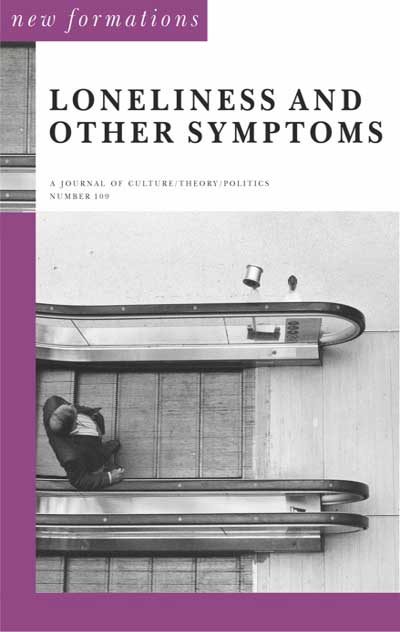
No Woman is an Island: The Politics of Loneliness, Spare Rib and the Women’s Liberation Movement, 1969-1993
New Formations - Print ISSN 0950-2378 - Online ISSN 1741-0789
Volume 2023 Number 109
No Woman is an Island: The Politics of Loneliness, Spare Rib and the Women’s Liberation Movement, 1969-1993
Eleanor Careless, Jess Cotton pages 10‑28
DOI: 10.3898/NEWF:109.02.2023
Abstract
In this article we examine how loneliness is a political emotion that has played a crucial role in the formation of grassroots feminist networks and print culture, generating new ideas about collectivity. We frame feminist consciousness-raising groups and publications as infrastructures of loneliness that allow women at once to recognise isolation as a political condition and to cut through that isolation by forming social networks with other women in a local and national context. This article contributes to an emergent body of scholarship that uses affect theory as a lens through which to analyse the circulation of feeling in feminist periodicals, as well as in feminist movements more generally.
The article explores how the women’s liberation movement developed experimental responses to loneliness, as well as more commercial ones, which, if less overtly political, were also central to expanding terms of belonging as they critiqued the loneliness induced by the privatised heterosexual family unit. We turn first to consider the small group networks that were connected through Shrew in the early stages of the women’s liberation movement and subsequently to the print networks fostered by Spare Rib to examine the interlocking forces of grassroots and commercial feminist responses to loneliness.
The article analyses the possibilities and limitations of this politicisation of loneliness, insofar as feminist networks at once generated new radical forms of intimacy that allowed women to question the role of the nuclear family, and created their own structures of exclusion, especially for Black British and British Asian women who consequently formed their own groups and publications. We argue that our understanding of loneliness must be situated in relation to the material and psychic resources that generate structures of inclusion and exclusion. At a time of ever-increasing social atomisation and proclaimed ‘crises’ of loneliness, this article adds historical depth to our understanding of feminist networks and demonstrates the importance of sharing the feeling of being lonely as a way of forging new forms of communality and togetherness.
SORRY - you are not registered as being permitted online access to the full text of this article
You have the following options:
- If you are viewing this via an institution or academic library you can ask that your institution takes out a Subscription to this journal.
- If you already have a Personal Subscription please login below
Forgotten your username / password? Click here to locate
- Purchase an annual Personal Subscription
PRINT + DIGITAL personal subscription (£45 / year)
DIGITAL personal subscription (£30 / year)
A Personal Subscription provides immediate access not only to the single article you are seeking, but also to all past and future articles in this journal up to the expiry of your annual (calendar year) subscription. - Purchase immediate access to this single article (UK£7.00) - Buy article Coming Soon
To cite this article
Eleanor Careless, Jess Cotton (2023) No Woman is an Island: The Politics of Loneliness, Spare Rib and the Women’s Liberation Movement, 1969-1993, New Formations, 2023(109), 10-28 . https://doi.org/10.3898/NEWF:109.02.2023
